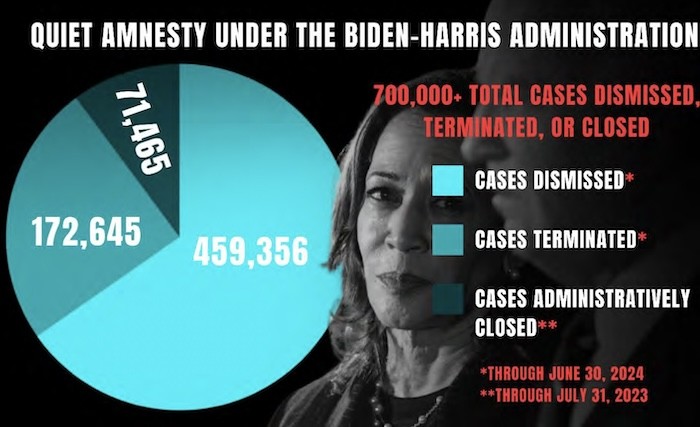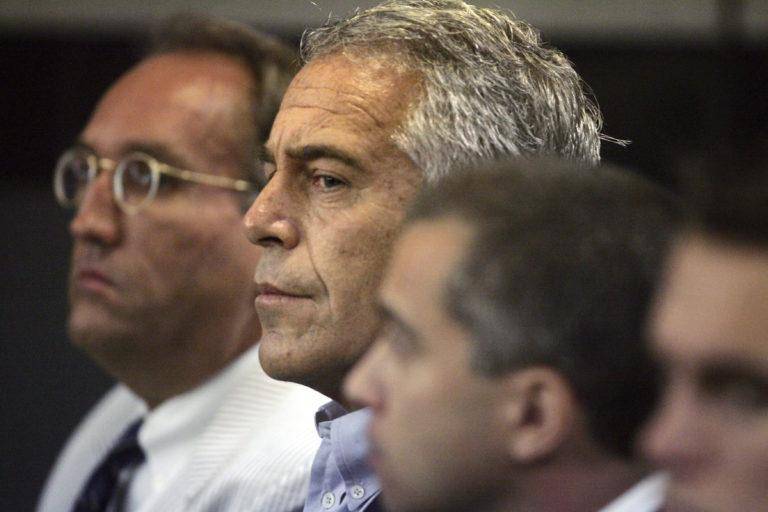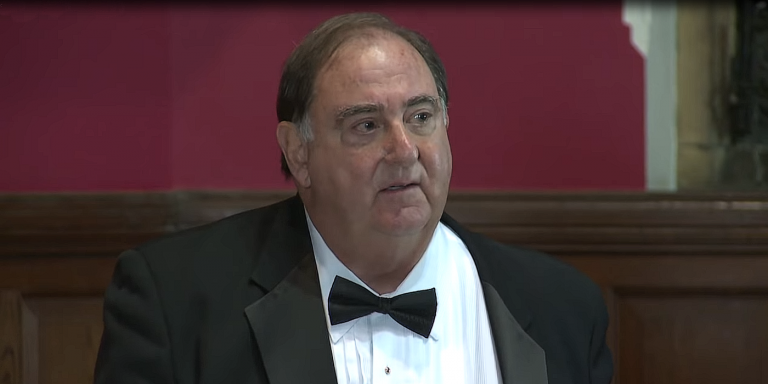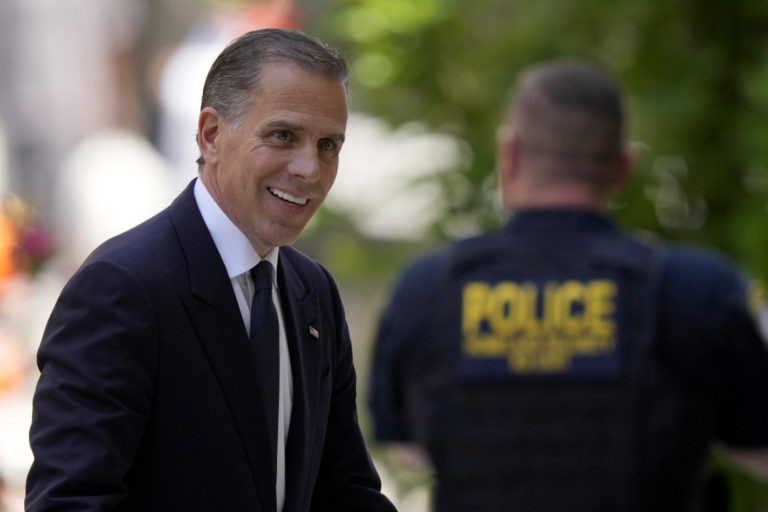(Headline USA) A New York City sightseeing helicopter broke apart in midair Thursday and crashed upside-down into the Hudson River, killing the pilot and a family of five Spanish tourists in the latest U.S. aviation disaster, officials said.
The victims included Siemens executive Agustin Escobar, his wife, Mercè Camprubí Montal, a global manager at an energy technology company, and three children, in addition to the pilot, a person briefed on the investigation told The Associated Press. The person could not discuss details of the investigation publicly and spoke on condition of anonymity.
Photos posted on the helicopter company’s website showed the couple and their children smiling as they boarded just before the flight took off.
The flight departed a downtown heliport around 3 p.m. and lasted less than 18 minutes. Radar data showed it flew north along the Manhattan skyline and then back south toward the Statue of Liberty.
Video of the crash showed parts of the aircraft tumbling through the air into the water near the shoreline of Jersey City, New Jersey.
Witnesses describe the helicopter’s plunge into the Hudson
A witness there, Bruce Wall, said he saw it “falling apart” in midair, with the tail and main rotor coming off. The main rotor was still spinning without the helicopter as it fell.
Dani Horbiak was at her Jersey City home when she heard what sounded like “several gunshots in a row, almost, in the air.” She looked out her window and saw the chopper “splash in several pieces into the river.”
The helicopter was spinning uncontrollably with “a bunch of smoke coming out” before it slammed into the water, said Lesly Camacho, a hostess at a restaurant along the river in Hoboken, New Jersey.
On air traffic control radio, an NYPD helicopter pilot can be heard saying, “Be advised, you do have an aircraft down. Holland Tunnel. Please keep your eyes open for anybody in the water.”
About five minutes after that, someone asks, “Hey Finest,” a reference to the NYPD’s call sign, “what’s going on over there by the Holland Tunnel?”
“The ship went down,” someone else responds.
Rescue boats circled the submerged aircraft within minutes of impact near the end of a long maintenance pier for a ventilation tower serving the Holland Tunnel. Recovery crews hoisted the mangled helicopter out of the water just after 8 p.m. using a floating crane.
The bodies were also recovered from the river, Mayor Eric Adams said.
The flight was operated by New York Helicopters, officials said. No one answered the phones at the company’s offices in New York and New Jersey.
A person who answered the phone at the home of the company’s owner, Michael Roth, said he declined to comment. Roth told the New York Post he was devastated and had “no clue” why the crash happened.
“The only thing I know by watching a video of the helicopter falling down, that the main rotor blades weren’t on the helicopter,” the Post quoted him as saying. He added that he had not seen such a thing happen during his 30 years in the helicopter business, but noted: “These are machines, and they break.”
Emails seeking comment were sent to attorneys who have represented Roth in the past.
The Federal Aviation Administration identified the helicopter as a Bell 206, a model widely used in commercial and government aviation, including by sightseeing companies, TV news stations and police. It was initially developed for the U.S. Army before being adapted for other uses. Thousands have been manufactured over the years.
The National Transportation Safety Board said it would investigate.
Tragedy strikes a family from Spain
Escobar worked for the tech company Siemens for more than 27 years, most recently as global CEO for rail infrastructure at Siemens Mobility, according to his LinkedIn account. In late 2022 he briefly became president and CEO of Siemens Spain. In a post about the position, he thanked his family: “my endless source of energy and happiness, for their unconditional support, love … and patience.”
Escobar regularly posted about the importance of sustainability in the rail industry and often traveled internationally for work, including journeying to India and the UK in the past month. He also was vice president of the German Chamber of Commerce for Spain since 2023.
“We are deeply saddened by the tragic helicopter crash in which Agustin Escobar and his family lost their lives. Our heartfelt condolences go out to all their loved ones,” Siemens said in a statement early Friday.
Camprubí Montal worked in Barcelona, Spain, for energy technology company Siemens Energy for about seven years, including as its global commercialization manager and as a digitalization manager, according to her LinkedIn account.
Spanish regional government officials said the family resided in Barcelona.
“(I am) dismayed by the tragic helicopter accident in the Hudson River in New York which cost the lives of six people, five of which were members of a Barcelona family,” Catalan regional president Salvador Illa wrote on X.
Another regional official said Agustin Escobar was originally from Puertollano, a town in central Spain.
“I want to express my sorrow for the traffic helicopter accident in New York that claimed the lives of Agustín Escobar and his family,” Castilla La Mancha regional president Emiliano García-Page wrote on X. “Agustín is native of Puertollano and in 2023 we named him a Favorite Son of Castilla La Mancha.”
What may have caused the crash
Video of the crash suggested that a “catastrophic mechanical failure” left the pilot with no chance to save the helicopter, said Justin Green, an aviation lawyer who was a helicopter pilot in the Marine Corps.
It is possible the helicopter’s main rotors struck the tail boom, breaking it apart and causing the cabin to free fall, Green said.
“They were dead as soon as whatever happened happened,” Green said. “There’s no indication they had any control over the craft. No pilot could have prevented that accident once they lost the lifts. It’s like a rock falling to the ground. It’s heartbreaking.”
The skies over Manhattan are routinely filled with planes and helicopters, both private recreational aircraft and commercial and tourist flights. Manhattan has several helipads from which business executives and others are whisked to destinations throughout the metropolitan area.
At least 38 people have died in helicopter accidents in New York City since 1977. A collision between a plane and a tourist helicopter over the Hudson in 2009 killed nine people, and five died in 2018 when a charter helicopter offering “open door” flights went down into the East River.
New York Helicopters also owned a Bell 206 that lost power and made an emergency landing on the Hudsonduring a sightseeing tour in June 2013. The pilot managed to land safely and he and the passengers — a family of four Swedes — were uninjured. The National Transportation Safety Board found that a maintenance flub and an engine lubrication anomaly led to the power cutoff.
Thursday’s crash was the first for a helicopter in the city since one hit the roof of a skyscraper in 2019, killing the pilot.
The accidents and the noise caused by helicopters have repeatedly led some community activists and officials to propose banning or restricting traffic at Manhattan heliports.
Other recent crashes and close calls have already left some people worried about the safety of flying in the U.S.
Seven people were killed when a medical transport plane plummeted into a Philadelphia neighborhood in January. That happened two days after an American Airlines jet and an Army helicopter collided in midair in Washington in the deadliest U.S. air disaster in a generation.
Adapted from reporting by the Associated Press










